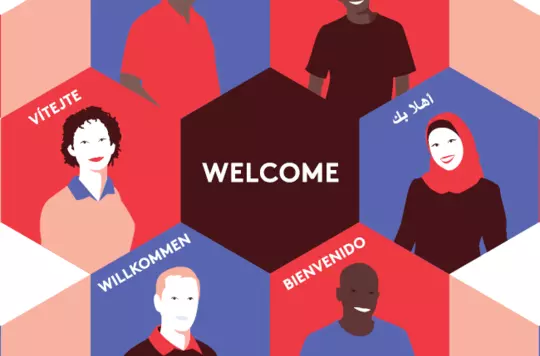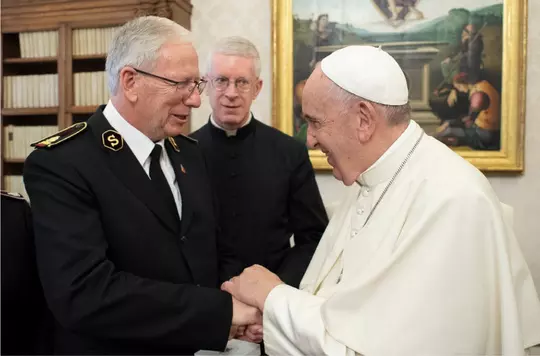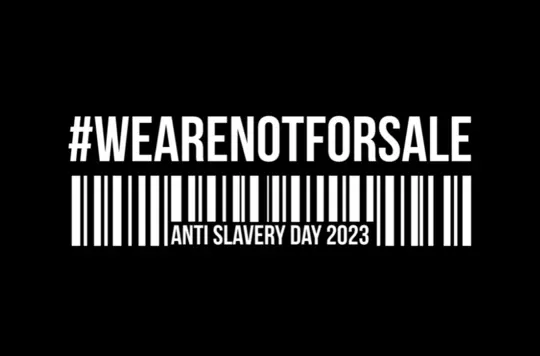9 October 2023
A safe space to sing
Simon Hope

Simon Hope hears about the impact of the international singing group ‘Dreams’.
The Salvation Army loves an opportunity for a good sing. Some sing to worship God. Some sing to bond with their community. Some sing simply because they must.
It’s with this passion for music that 17 singers from 7 countries gather for the international singing group ‘Dreams’. Comprising survivors of modern slavery and Salvation Army support workers, the group started two years ago when group leader Nigel Long found an unused piano.
The singing group is part of the Army’s London Outreach service for survivors of modern slavery. This work is carried out through the Army’s Modern Slavery Victim Care Contract with the government, which has seen the Army and its partners help more than 18,000 survivors in England and Wales rebuild their lives over the past 11 years. Specialist support workers, like Nigel, work with individuals as they recover from experiences of exploitation.
‘When I started work with the Army, I found a lovely room with a piano,’ Nigel explains. ‘I thought a singing group would be a nice activity to help get clients into the community. Everyone was keen and we would sing for hours! Once we started, it was hard to stop.’
‘I love music,’ shares singing group member Wendy. ‘But when I started, I was nervous and not sure that everyone else was going to accept me. Thankfully, the acceptance they showed me really boosts my confidence. That’s why I get inspired coming every week. No matter how far I have to come it gives me a lot of inspiration, comfort and love.
‘This is my comfort zone,’ adds fellow member Jasmine. ‘Before, I was very shy. With the help of Nigel, this is a place to not be scared.’
That sense of a safe space is informed by a ‘check-in’ time at the start of each practice. This offers an opportunity to share something that happened in the week.
‘They’re very sensitive to each other,’ Nigel commends. ‘They notice if someone is going through it or having some issues and not doing well. They’re really good at supporting each other. Usually, I find that they like to share and, whether they’re feeling good or bad, they can feel validated.’
There’s no direct evangelising to the group because it includes people of different faiths and none. Nonetheless, the group exemplifies the Army’s value of compassion by loving each other without discrimination through communal support, care and respect.
‘Me and Jasmine are Muslim,’ explains Bituin, another group member. ‘Here everybody is equal, and no one judges you about your religion. We are not arguing about our religion. Because of the music we connect with each other. That’s why we love it!’
‘We just want to say thank you so much,’ Wendy concludes. ‘Especially to The Salvation Army for helping us to survive. I don’t want to get emotional, we’re just so happy and thankful.’
- Some names have been changed to protect people’s identities.
Written by

Simon Hope
Editorial Assistant
Discover more

Salvationist finds out why people choose to volunteer for the Anti-Trafficking and Modern Slavery Department.

A collection of posters and flyers translated in a number of languages that can be used in your corps or centre.

Supporting and developing the ecumenical and interfaith work of The Salvation Army.
